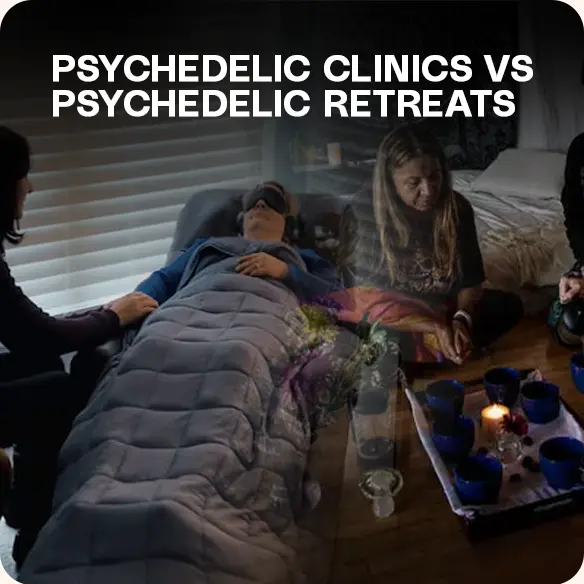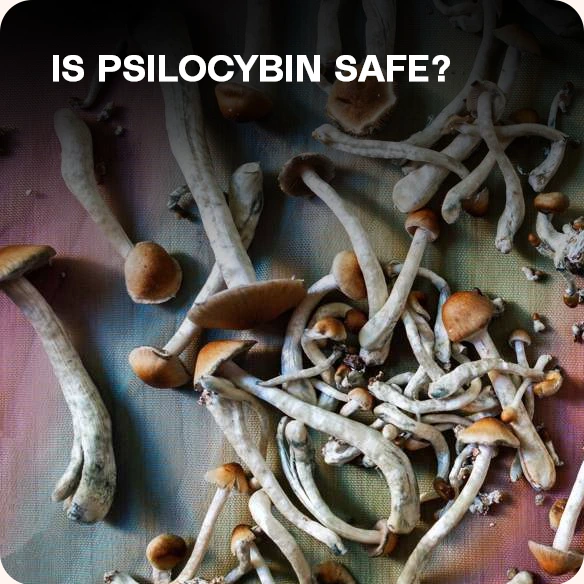To microdose psilocybin for studying, start with very low doses—typically around one-tenth of a recreational amount—to avoid psychedelic effects while enhancing focus and cognitive function.
Take doses on study days, preferably early in the day, and follow a structured schedule like the Fadiman protocol for best results.
Microdosing has become a popular topic for those looking to improve their focus.
Microdosing refers to taking a very low dose of psilocybin, typically below the threshold for altering perception or consciousness.
This article explains how microdosing might enhance mental concentration and focus.
We’ll review the evidence and provide information for those considering this method—without making false claims.
Key Takeaways
- Microdosing involves taking low doses of psilocybin to improve cognitive abilities, mood, and emotional resilience without inducing full psychedelic effects.
- Research suggests microdosing psilocybin may enhance creativity, problem-solving, focus, and psychological flexibility, though the evidence is still emerging and sometimes mixed.
- Personal experiences and anecdotal reports often highlight benefits such as improved mental concentration and well-being, but placebo effects may also play a role.
- Safety considerations are important; potential side effects include mild increases in blood pressure, anxiety, nausea, and cognitive impairments, which are generally transient and dose-dependent.
- Medical supervision and harm reduction practices are recommended, especially for individuals with pre-existing mental health disorders or psychiatric conditions.
- Legal status varies widely; understanding local laws and consulting healthcare providers is essential for responsible use.
- Established microdosing protocols, like the Fadiman method and Stamets stack, provide structured dosing schedules to optimize benefits and minimize tolerance.
- More research, including rigorous clinical trials and long-term safety assessments, is needed to fully understand the therapeutic potential, optimal dosing, and risks associated with microdosing psilocybin.
What is Psilocybin?
Psilocybin is a naturally occurring psychedelic compound found in a variety of mushroom species, commonly known as “magic mushrooms.”
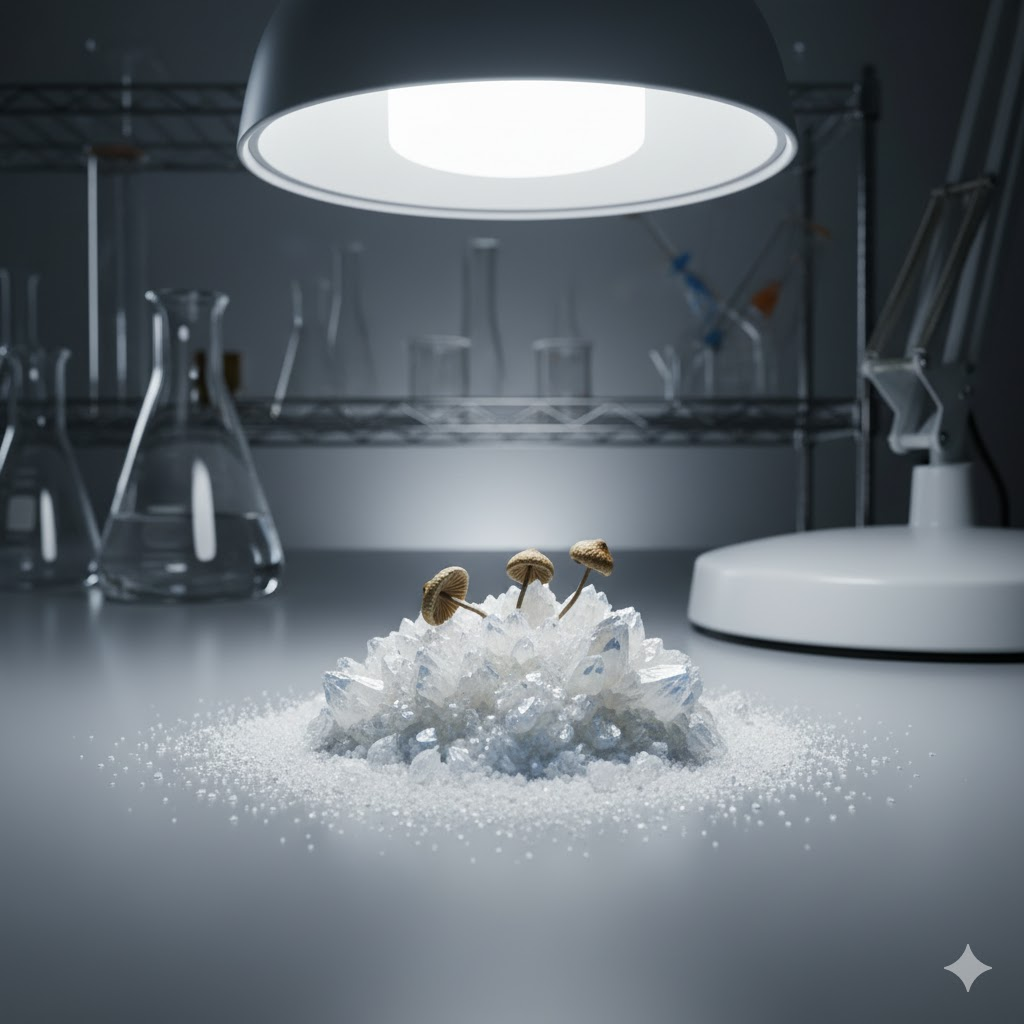
For centuries, these mushrooms have played a significant role in traditional medicine and spiritual rituals, especially among indigenous cultures seeking altered states of consciousness and healing.
In recent years, psilocybin has captured the attention of the scientific community for its promising effects on mental health.
Modern research is exploring how this psychedelic supplement may help address a range of mental health conditions, including anxiety disorders, post traumatic stress disorder (PTSD), and treatment resistant depression.
Other conditions currently being investigated in clinical trials include major depressive disorder, eating disorders, alcohol use disorder, chronic pain, and end of life anxiety.
Research is also exploring the potential of psilocybin and other psychedelics in addressing substance use and substance use disorders, highlighting the importance of understanding substance use within medical and harm reduction frameworks.
Clinical trials and systematic reviews are beginning to reveal that psilocybin, when used under medical supervision, could offer new hope for individuals who have not responded to conventional treatments.
As the conversation around magic mushrooms and mental health continues to evolve, psilocybin is emerging as a potential tool for improving well-being and addressing some of the most challenging mental health disorders of our time.
Can Microdosing Psilocybin Help With Studying?
Yes, microdosing psilocybin can help with studying by enhancing focus, creativity, problem-solving abilities, cognitive functions, and psychological flexibility according to research showing that ‘microdosing is frequently undertaken to improve mood, cognitive function and mental concentration, as well as to enhance creativity and problem-solving skills,‘ – Cavanna et al., 2022; Rootman et al., 2021; Nayak et al., 2023).
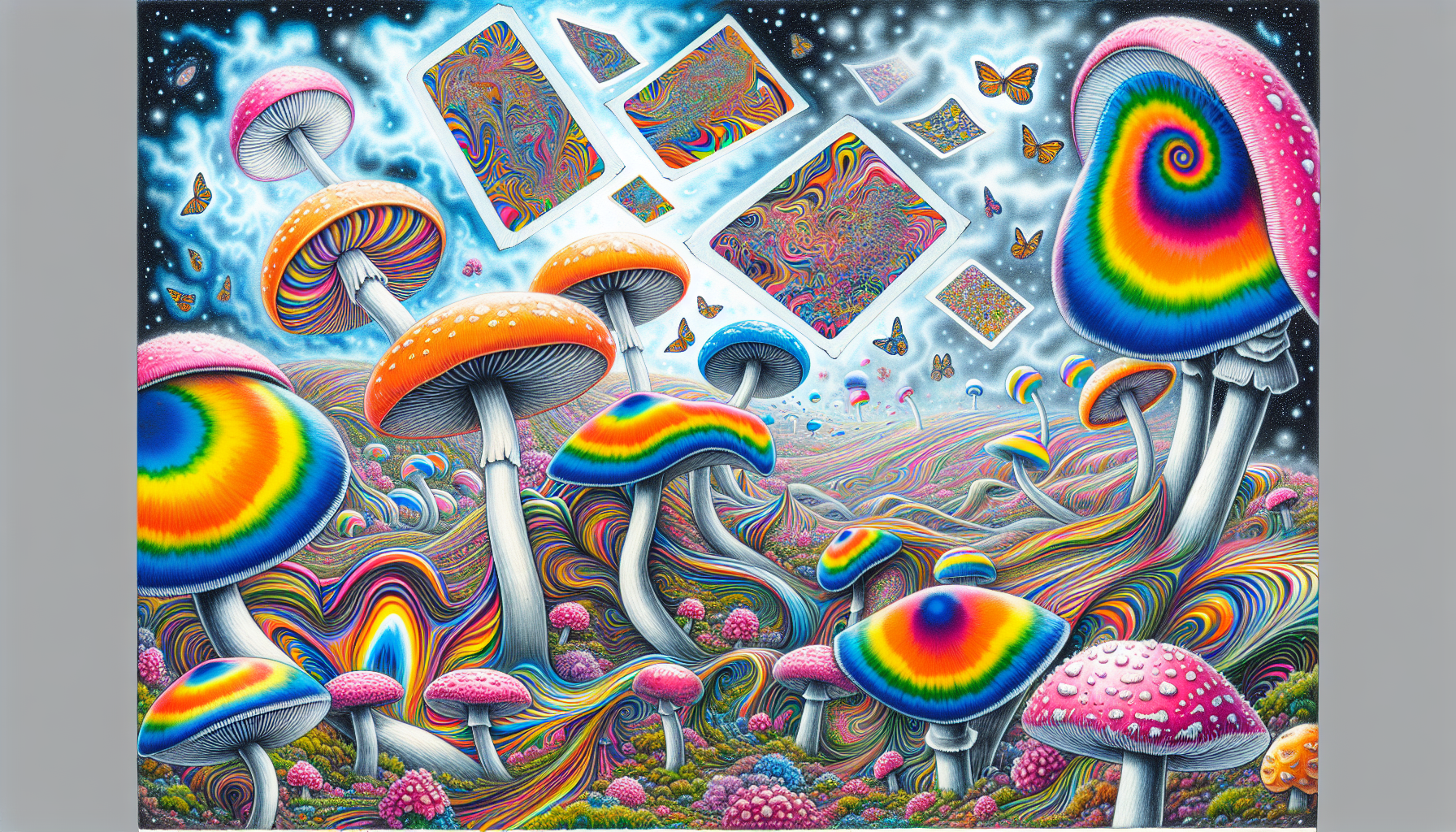
This practice involves taking very low doses of psilocybin, often about one-tenth of a recreational dose, so that it does not produce a full psychedelic effect.
These cognitive improvements are believed to result from psilocybin’s action on the brain’s 5-HT2A receptors, which modulate the balance between cognitive persistence and flexibility, a mechanism that has attracted interest from students and academics alike.
Beyond cognitive benefits, microdosing may also improve mood and alleviate symptoms related to mental health disorders.
For those seeking a structured and consistent approach, microdosing capsules formulated specifically for clarity, memory, and cognitive flow provide a reliable way to experience these benefits.
Each capsule contains a carefully measured psilocybin microdose designed to deliver consistent results.
The discussion around microdosing as a study aid combines personal experiences with growing scientific interest, focusing on its potential to improve academic performance and mental well-being.
To learn more about the broader benefits of microdosing, you can explore additional resources on this topic.
How to Approach Microdosing for Studying?
Approach microdosing for studying cautiously: check local laws, consult a clinician, and never mix with alcohol or other psychoactives.

Start low on study days, dose early to protect sleep, keep a log, and prioritize basics—sleep, nutrition, exercise, and distraction control.
Using microdosing to improve your focus requires a careful approach. Here’s a simple guide to help you get started:
- Many people use dried mushrooms, specifically psilocybin containing mushrooms or psychedelic mushrooms, for microdosing. This method allows for more consistent dosing and is commonly referenced in scientific studies.
Dosage
- Start Low: Use very low doses that provide cognitive benefits without causing any psychedelic effects. Precision is key, as high doses can lead to profound psychological changes and noticeable side effects, which are not the goal of microdosing.
Timing
- Study Days: Keep microdosing for days dedicated to studying to maximize the benefits without distractions.
- Early Dosing: Microdose early in the day to avoid disrupting sleep patterns, which are crucial for memory and learning.
Setting Realistic Expectations
- Supplementary Tool: Understand that microdosing is not a magic solution. It should complement good study habits, proper nutrition, and regular exercise. Some perceived benefits may be due to the placebo effect, where expectations and beliefs play a significant role. If you’re just starting out, read our beginner’s guide on how to microdose to ensure safe and effective results.
- Individual Differences: Effects can vary from person to person. Be ready to experiment and adjust to find what works best for you.
Documentation
- Keep a Journal: Note your dosages, timings, and the impact on your cognitive and emotional well-being in a journal. This will help you adjust and optimize your routine.
By following these guidelines, you can use microdosing safely and effectively to improve your studying and overall well-being.
Check our mini-pack bundle that contains samples of our top three blends!
Investigating the Science: What Research Says
Research suggests that microdosing psilocybin may offer cognitive benefits, though evidence is still developing.
Some studies support these benefits by highlighting improvements in problem-solving abilities and creativity, with some reporting a significant effect on creativity scores, while others found no significant differences in cognitive performance between microdosing and placebo groups.
Some research is also exploring microdosing within the framework of psychedelic therapy to better understand its therapeutic potential and how structured therapeutic approaches may enhance outcomes.
In addition to these findings, anecdotal reports also contribute to our understanding of microdosing’s effects, though scientific validation remains limited.
To better understand which microdosing formula suits your needs—whether for focus, calm, or creativity—check out our comparison: Microdosify Calm vs. Create vs. Focus.
What Are the Key Studies and Findings on Microdosing Psilocybin?
Prochazkova et al. (2018)
This study, published in Psychopharmacology, examined the effects of microdosing psilocybin on 36 participants.
The participants were given tasks that measured creativity, such as the Picture Concept Task and the Alternate Uses Task.
Results showed significant improvements in both divergent and convergent thinking, indicating enhanced problem-solving skills and creative thinking.
The study also measured acute effects immediately after dosing, noting changes in perception and mood, but did not report significant cognitive impairment at the microdosing level.
Polito & Stevenson (2019)
Published in PLOS ONE, this study involved 98 participants who were microdosed. Participants completed surveys measuring psychological well-being, stress levels, and cognitive flexibility.
The study found that microdosing led to significant improvements in these areas, with participants reporting increased focus, reduced stress, and enhanced creativity.
However, the absence of a placebo group in this study means that some reported benefits and acute effects could be influenced by participants’ expectations, highlighting the importance of placebo-controlled trials in future research.
Kuypers et al. (2019)
This study, published in the Journal of Psychopharmacology, involved 38 participants. They were assessed using tasks designed to measure cognitive flexibility and creativity. T
he results showed improvements in divergent thinking and mental flexibility, which are important for academic success.
The study also monitored acute effects following microdosing and noted that while most participants did not experience significant cognitive impairment, a few reported mild disturbances in concentration.
Fadiman Study (2011)
James Fadiman collected self-reported data from individuals practicing microdosing.
Participants reported consistent improvements in mood, creativity, and focus, suggesting cognitive benefits without significant adverse effects.
However, as this study did not include a placebo group, it is difficult to separate true pharmacological effects from placebo responses or acute effects related to participant expectations.
This large dataset provided valuable insights into the positive experiences of those who microdose.
What Are the Future Directions of Microdose Psilocybin?
Research on microdosing continues to develop within the broader field of psychedelic research. Current studies show promising results, suggesting that microdosing can be a helpful study aid.
However, a systematic review of existing evidence is needed to clarify the effects and safety of microdosing, as well as to identify gaps in current data.
Studying microdosing’s effects is challenging because creativity and divergent thinking are hard to measure.
Future studies with standardised methodologies and comprehensive reporting will be essential to confirm these findings and provide more substantial evidence.
As scientists explore microdosing, understanding its impact on cognitive function requires ongoing psychedelic research.
The positive feedback from personal experiences and early research highlights its potential for helping with studying, but rigorous future studies are necessary to establish reliable evidence.
Personal Experiences and Anecdotal Evidence
Personal stories about microdosing provide valuable insights. Many people report significant improvements in cognitive abilities, including better focus and creativity, which they attribute to microdosing.
These experiences are often collected through online surveys and offer a brief look into the potential effects of microdosing.
- Reported Benefits: Many individuals report that microdosing improves focus, creativity, and mood, with improved mood being one of the most commonly mentioned outcomes. People often share experiences of feeling more productive, having clearer thoughts, and enjoying a more positive outlook on life. For example, some have noted increased productivity and creativity during work, while others have experienced enhanced clarity and concentration during study sessions.
- Common Protocols: Popular protocols include the Fadiman protocol (microdosing every three days) and the Stamets stack (four days on, three days off). These schedules aim to maintain positive effects without intense psychedelic experiences.
- Positive Feedback: People feel more engaged in their tasks and experience a sense of well-being. Many have mentioned that microdosing psilocybin helps unlock new levels of creativity and makes it easier to overcome challenges like writer’s block. These personal experiences, often gathered through online surveys, provide valuable insights into the potential benefits of microdosing. For a guided approach, our 30-Day Experience Program offers a structured plan for integrating microdosing into your daily academic or work routine.
What Are the Safety and Considerations for Microdosing Psilocybin?
When considering microdosing for cognitive enhancement, a few key factors must be considered to ensure a safe and effective experience.
Potential side effects of microdosing psychedelics can include increased blood pressure, nausea, anxiety, headaches, cognitive impairments, and gastrointestinal issues.
These side effects are often transient and dose-dependent, but current research is limited in fully characterizing and standardizing them.
Practicing harm reduction is essential when exploring microdosing, especially in unregulated or decriminalized contexts.
This includes following safety principles, minimizing risks, and seeking medical supervision whenever possible.
In Oregon, the Oregon Health Authority oversees the regulation and safety of psilocybin services, providing a model for safe and legal access.
Considerations:
- Dosing Guidelines: To maintain positive effects without intense experiences, follow protocols like the Fadiman Protocol or Stamets stack.
- Individual Differences: Effects can vary depending on an individual’s biochemistry, mental health history, and the context in which microdosing is used. People with a history of psychiatric disorders, mental illness, or mood disorders should exercise caution or consult a professional before microdosing.
- Informed Decisions: Gather as much information as possible and consider personal health and well-being before starting.
For those considering microdosing as a study aid, it’s essential to recognize that it may not work the same for everyone. Responsible use, guided by current knowledge and safety guidelines, is crucial.
The pursuit of cognitive enhancement through microdosing should be balanced with a commitment to safety, ethics, and personal responsibility. Understanding the full spectrum of microdosing’s effects requires ongoing exploration and attention to personal health and cognitive functioning.
What is the Therapeutic Potential of Psilocybin Microdosing?
Psilocybin microdosing holds promise as a subtle yet effective approach to support mental health by improving mood, cognitive function, and emotional resilience without the intense effects of full psychedelic doses.
Psilocybin microdosing involves taking very low doses of psilocybin-containing mushrooms to achieve therapeutic benefits while avoiding the hallucinogenic experiences of higher doses.
This practice has garnered attention for its potential to aid individuals coping with various mental health conditions, including anxiety disorders, post traumatic stress disorder (PTSD), and treatment resistant depression.
Emerging research and anecdotal evidence suggest that microdosing may help enhance mood, reduce anxiety symptoms, and improve cognitive performance, offering a complementary option for those who have not found success with conventional treatments.
Many users report feeling more balanced, focused, and resilient in their daily lives, which contributes to overall well-being and quality of life.
These subjective improvements are fueling scientific interest, prompting further studies to explore how psilocybin microdosing could be integrated into broader mental health care frameworks.
Despite encouraging early findings, it is essential to recognize that current evidence remains preliminary.
More rigorous clinical trials and long-term safety assessments are necessary to fully understand the therapeutic potential, optimal dosing strategies, and possible risks associated with psilocybin microdosing.
As research progresses, individuals considering this approach should make informed decisions in consultation with healthcare professionals to ensure responsible and safe use.
What Are the Acute Effects and Benefits of Microdosing?
The acute effects of microdosing psilocybin and other psychedelic drugs are generally subtle but can include:
- Enhanced mood and increased creativity.
- Improved cognitive function without the intense altered consciousness seen at hallucinogenic doses
- Feeling more focused, mentally clear, and emotionally balanced shortly after taking a microdose
- Potential meaningful benefits for mental health conditions such as anxiety disorders, bipolar disorder, post traumatic stress disorder, and treatment resistant depression
- Significant differences between microdose psilocybin users and placebo groups in clinical trials and systematic reviews, indicating potential positive effects on depression symptoms and mood disorders for a significant subset of individuals
- Support for cognitive flexibility and focus, aiding users in better managing mental tasks
However, while anecdotal reports and some scientific research are promising, more rigorous studies are needed to fully understand the acute effects, long-term safety, and therapeutic potential of microdosing psilocybin and related psychedelic substances.
How Can You Make Microdosing Work for You?
To make microdosing effective and safe, it’s crucial to approach it with intention, medical supervision, and harm reduction practices.
Working with a primary care physician or medical supervisor is especially important for those with mental health conditions or psychiatric disorders to monitor progress and manage side effects.
Keeping a detailed journal of your microdosing experience—tracking dosages, mood, cognitive changes, and overall well-being—helps personalize your routine and optimize benefits.
Many find support in online harm reduction communities and forums, which offer shared experiences and guidance.
Combining microdosing with other therapies, like psychedelic assisted therapy or cognitive-behavioral therapy, can enhance mental health and cognitive outcomes by helping process insights and manage challenges.
Prioritizing safety and support ensures microdosing can be a positive, sustainable part of your wellness journey.
What is the Global Legal Status of Psilocybin Microdosing?
The global legal status of psilocybin microdosing is complex and varies widely depending on the country and even within regions of the same country.
In the United States, psilocybin is classified as a Schedule I substance under federal law, making its possession, distribution, and use illegal outside of approved research or medical contexts.
However, some states and cities have taken progressive steps toward reform; for instance, Oregon has pioneered regulated psilocybin assisted therapy programs through the Oregon Psilocybin Services initiative, providing a legal framework for therapeutic use under medical supervision.
Other jurisdictions have decriminalized personal use, reflecting a growing shift in attitudes toward psychedelic substances.
Internationally, the legal landscape is equally diverse: Canada permits psilocybin use for specific medical or therapeutic purposes, while the Netherlands allows the sale of psilocybin-containing truffles in licensed shops.
Conversely, many countries maintain strict prohibitions with severe penalties for possession or use.
Given this patchwork of regulations, it is essential for individuals to thoroughly research local laws and consult with health care providers and harm reduction organizations to ensure that their approach to psilocybin microdosing is both safe and legally compliant.
As societal perspectives and legislation continue to evolve, staying informed and practicing responsible use remain key to navigating the changing global landscape of psilocybin microdosing.
Conclusion: How to Microdose Mushrooms for Studying?
Microdosing psilocybin mushrooms may enhance focus, creativity, and cognitive flexibility, appealing to students and professionals seeking mental performance boosts.
Taking very low doses—fractions of recreational amounts—aims to provide subtle cognitive and emotional benefits without intense psychedelic effects.
Research and anecdotal evidence suggest improvements in problem-solving, mood, and psychological resilience, linked to psilocybin’s action on serotonin 5-HT2A receptors that affect brain networks involved in cognition and perception.
However, current research is preliminary, with some studies noting placebo effects and the need for more rigorous trials.
Safety is crucial; microdosing requires precise dosing, timing, and awareness of individual responses.
Consulting healthcare professionals is advised, especially for those with mental health or psychiatric conditions. Legal considerations and harm reduction practices are important.
Protocols like the Fadiman method and Stamets stack offer structured dosing to maintain benefits and reduce tolerance. Users should document experiences to optimize their regimen.
While not a replacement for traditional study methods, microdosing can complement healthy habits like nutrition and exercise.
Its future as a cognitive enhancer depends on ongoing research to clarify efficacy, safety, and mechanisms.
In summary, microdosing psilocybin mushrooms holds potential as a study aid by subtly improving cognition and mood, with responsible use and further research needed to define its role in academic and mental health contexts.
Sources:
- Szigeti, B., Kartner, L., Blemings, A., Rosas, F., Feilding, A., & Nutt, D. (2021). Self-blinding citizen science to explore psychedelic microdosing. eLife
- Anderson, T., Petranker, R., Dinh-Williams, L. A., et al. (2019). Microdosing psychedelics: Personality, mental health, and creativity differences in microdosers. Psychopharmacology
- Carhart-Harris, R. L., Bolstridge, M., Rucker, J., et al. (2016). Psilocybin with psychological support for treatment-resistant depression: Six-month follow-up. The Lancet Psychiatry
- Kuypers, K. P. C., et al. (2019). Microdosing psychedelics: More questions than answers? An overview and suggestions for future research. Journal of Psychopharmacology
- Carhart-Harris, R. L., et al. (2020). Trial of psilocybin versus escitalopram for depression. New England Journal of Medicine
- Cavanna, F., Méndez, D., Lobo, S., Carhart-Harris, R. L., & Moreno, F. A. (2022). Microdosing with psilocybin mushrooms: a double-blind placebo-controlled study. Translational Psychiatry, 12, 331.
- Prochazkova, L., Lippelt, D. P., Colzato, L. S., Kuchar, M., Sjoerds, Z., & Hommel, B. (2018). Exploring the effect of microdosing psychedelics on creativity in an open-label natural setting. Psychopharmacology, 235(12), 3401–3413.
- Polito, V., & Stevenson, R. J. (2019). A systematic study of microdosing psychedelics. PLOS ONE, 14(2), e0211023.
- Kuypers, K. P. C., Riba, J., de la Fuente Revenga, M., Barker, S., Theunissen, E. L., & Ramaekers, J. G. (2019). Ayahuasca enhances creative divergent thinking while decreasing conventional convergent thinking. Psychopharmacology, 236(2), 581–593.
- Fadiman, J. (2011). The Psychedelic Explorer’s Guide: Safe, Therapeutic, and Sacred Journeys. Rochester, VT: Park Street Press.
Frequently Asked Questions
What exactly is microdosing?
Microdosing is the practice of taking very small, sub-perceptual doses of psilocybin mushrooms, aiming to enhance cognition or emotions without the intense effects of higher doses.
How does microdosing theoretically enhance cognitive abilities?
Microdosing enhances cognitive abilities by affecting serotonergic 5-HT2A receptors in the brain, promoting a balance between cognitive persistence and flexibility. This can lead to increased creativity and the ability to break rigid thought patterns. Microdosing may also influence visual perception, potentially altering how sensory information is processed as part of its cognitive effects.
Is there scientific evidence to support the benefits of microdosing for studying?
The scientific evidence for microdosing benefits is still emerging and requires further research to confirm initial findings. More comprehensive studies are needed for conclusive results.
Are there any risks associated with microdosing?
Microdosing is generally considered low-risk when done correctly, but it’s important to consult with a healthcare professional before starting to ensure its safety.
Can microdosing be used as a substitute for traditional studying methods?
No, microdosing should complement, not replace, traditional studying methods. It can enhance cognitive abilities but is most effective when combined with good study habits and a healthy lifestyle.
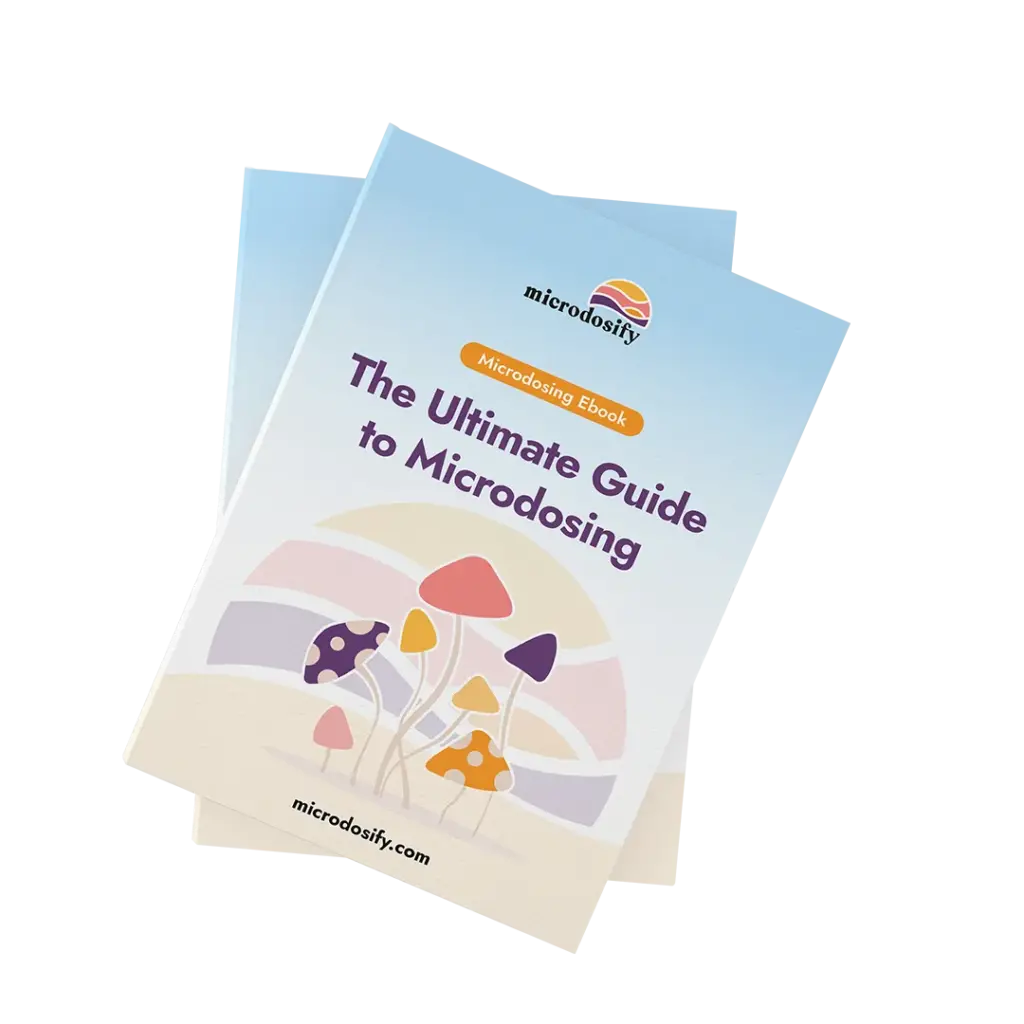

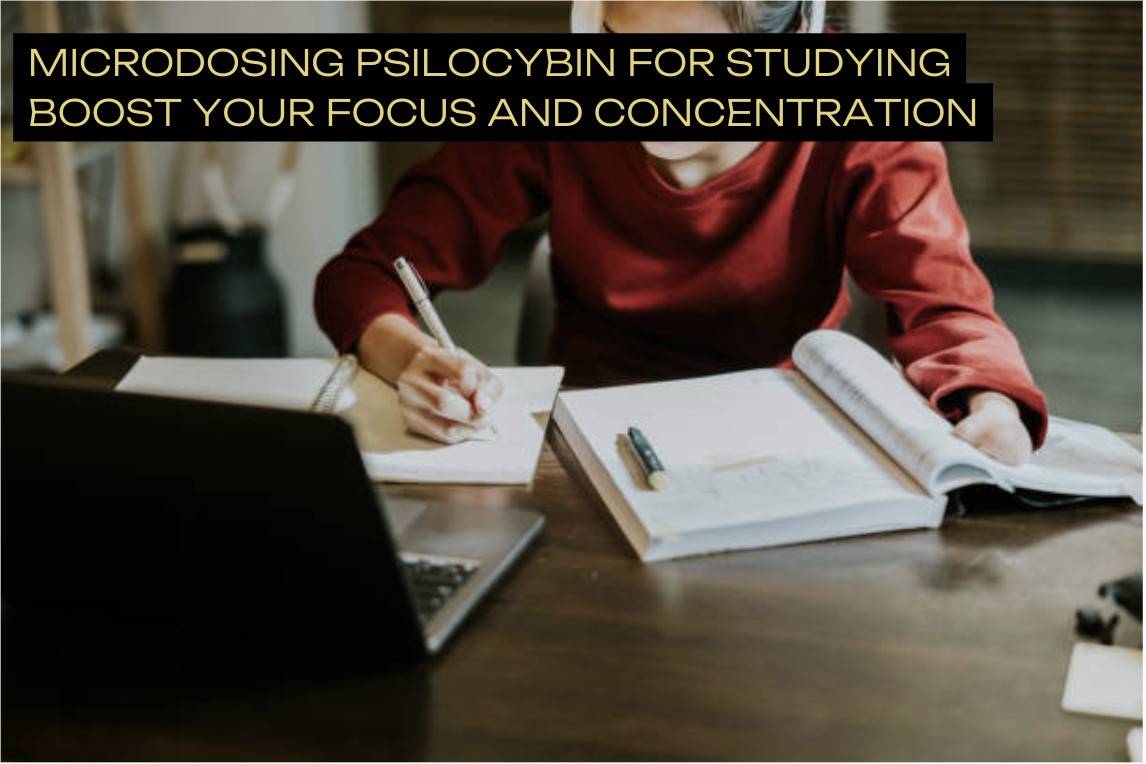
 18 min read
18 min read